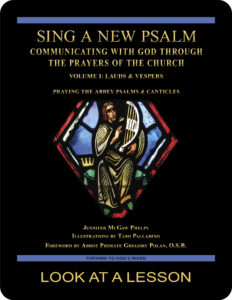attributes of God
 There are three significant attributes of God that all typically go by Latin names and are worth exploring. God is omnipotent, omniscient, and omnipresent. All of these words begin with the prefix omni meaning “all” or “every.”
There are three significant attributes of God that all typically go by Latin names and are worth exploring. God is omnipotent, omniscient, and omnipresent. All of these words begin with the prefix omni meaning “all” or “every.”
Omnipotent takes this prefix and adds to it the Latin potens, an adjective meaning “being able” or by extension “being strong.” The core concept here is having the ability to do something, so being omnipotent is having the ability to do all things or being all-powerful.
Omniscient adds to the prefix omni the adjective sciens, which shares a root with the English word science. Sciens means “knowing” or “understanding,” so being omniscient means knowing and understanding all things.
Omnipresent is perhaps the easiest of these three concepts to understand on the basis of English. Presence in English is largely unchanged in meaning from the Latin praesens. Omnipresent means “being present everywhere” with the strong implication that that presence is simultaneous.
Consider how these three attributes work together to form our core understanding of God. Most heresies throughout history have involved denying in some way one or more of these attributes of God. How do you think a better understanding of these core attributes of God can lead to a deeper relationship with God?
you also may like Volume I of our Psalms study
 Sing a New Psalm: Communicating with God Through the Prayers of the Church—Volume I: Lauds & Vespers provides an in-depth look at Psalms prayed in morning and evening liturgies. (Volume II, set for publication in 2024, looks at Vigils, Day Prayer & Compline.) The study is based on The Abbey Psalms and Canticles, a translation prepared by the Benedictine monks of Conception Abbey and published by the United States Conference of Catholic Bishops (USCCB). Click on the book’s cover to view a sample lesson.
Sing a New Psalm: Communicating with God Through the Prayers of the Church—Volume I: Lauds & Vespers provides an in-depth look at Psalms prayed in morning and evening liturgies. (Volume II, set for publication in 2024, looks at Vigils, Day Prayer & Compline.) The study is based on The Abbey Psalms and Canticles, a translation prepared by the Benedictine monks of Conception Abbey and published by the United States Conference of Catholic Bishops (USCCB). Click on the book’s cover to view a sample lesson.
 Click on the picture of the statue of Moses with horns (above) to learn more about Lost in Translation. A new entry is archived each Monday. Contact us to receive Lost in Translation by email every week. You may use any of the contact links on our website to ask Matthew a question.
Click on the picture of the statue of Moses with horns (above) to learn more about Lost in Translation. A new entry is archived each Monday. Contact us to receive Lost in Translation by email every week. You may use any of the contact links on our website to ask Matthew a question.
